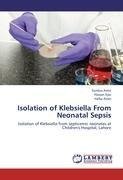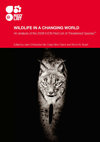
-
 Anglický jazyk
Anglický jazyk
Isolation of Klebsiella From Neonatal Sepsis
Autor: Sundus Amin
Despite ongoing major advances in antisepsis and in the development of potent antimicrobial agents since the early twentieth century, human beings remain subject to bacterial and fungal infection through mechanisms of virulence that continue to evade the... Viac o knihe
Na objednávku, dodanie 2-4 týždne
45.36 €
bežná cena: 50.40 €
O knihe
Despite ongoing major advances in antisepsis and in the development of potent antimicrobial agents since the early twentieth century, human beings remain subject to bacterial and fungal infection through mechanisms of virulence that continue to evade the latest advents in the microbiological field today Septicemia is an infection of the blood often caused by bacteria. Sometimes known as blood poisoning. Neonatal sepsis is invasive bacterial infection occurring in the first 90 days of life. Group B Streptococcus (GBS) and gram-negative enteric organisms (predominantly Escherichia coli) account for 70% of early-onset sepsis. Among all these isolates causing the neonatal sepsis Klebsiella is most important. Klebsiella is a genus of non motile, gram negative, oxidase negative, rod shaped bacteria with a prominent polysaccharide-based capsule. It can lead to a wide range of disease states, notably pneumonia, urinary tract infections, septicemia, and soft tissue infections. This book is all about the causative agents, their determination and cure at first place. Hope this may help the needing at elementary stage. GOOD LUCK!!
- Vydavateľstvo: LAP LAMBERT Academic Publishing
- Rok vydania: 2013
- Formát: Paperback
- Rozmer: 220 x 150 mm
- Jazyk: Anglický jazyk
- ISBN: 9783659321788












